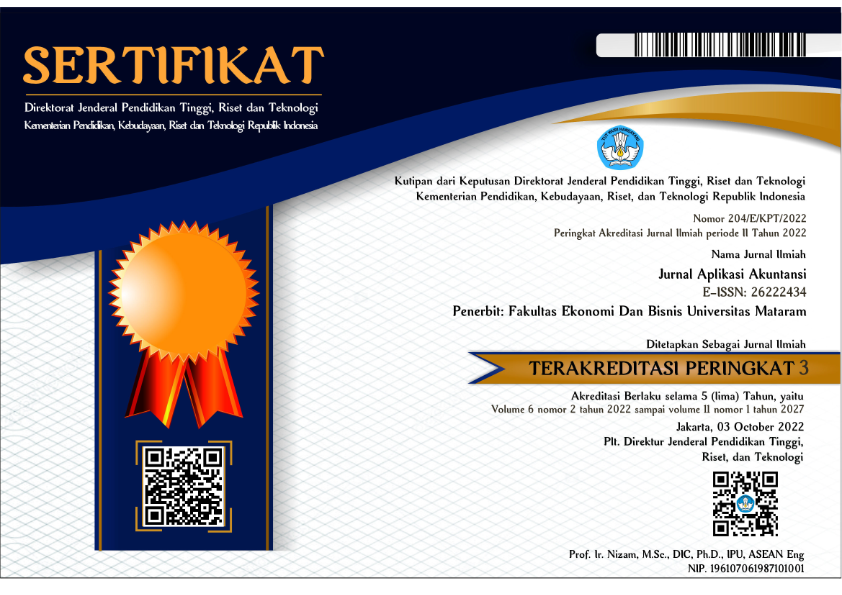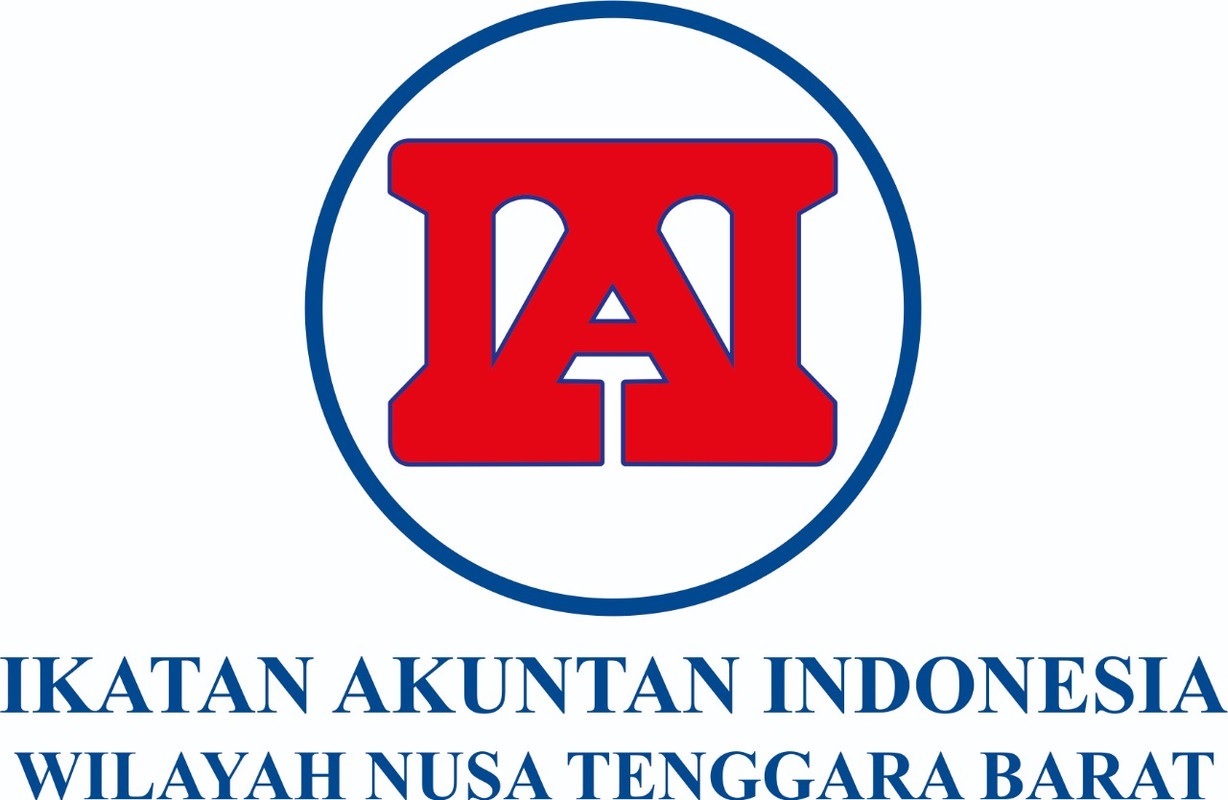REAKSI PASAR SAHAM PERUSAHAAN FARMASI SEBELUM DAN SESUDAH COVID-19 DI INDONESIA
DOI:
https://doi.org/10.29303/jaa.v6i1.112Keywords:
covid19, trading volume activity, stock priceAbstract
The COVID-19 pandemic has had an impact on social and economic activities that have an impact on stock market conditions in the world, including Indonesia. This study identified differences in stock prices and stock trading volumes (TVA) of companies in the pharmaceutical sector before and after the announcement of the first COVID-19 case in Indonesia. The sample used is 10 pharmaceutical sector companies listed on the Indonesia Stock Exchange (IDX). The method used in this research is an event study using paired sample t-test. Based on the test results, there was a difference in prices before and after the announcement of the first COVID-19 case in Indonesia, but there was no difference in trading volume testing.
References
Baker, S. R., Davis, S. J., Kost, K. J., Sammon, M. C., & Bloom, N. (2020). The Unprecedented Stock Market Impact Of Covid-19. Covid Economics: Vetted and Real-Time Papers, 1, 3.
Baldwin, R. (2020). Thinking Ahead about the Trade Impact of COVID-19. In R. Baldwin & B. Weder (Eds.), Economics in the Time of COVID-19. Mauro: CEPR Press.
Chen, C. D., Chen, C. C., Tang, W. W., & Huang, B. Y. (2009). The positive and negative impacts of the SARS outbreak: A case of the Taiwan industries. The Journal of Developing Areas, 43 (1), 281–293.
Dewi, I. G. A. A. O., & Rama, G. R. B. (2019). Analisis Abnormal Return , Trading Volume Activity dan Foreign Capital Inflow Sebelum dan Sesudah Pemilihan Presiden dan Pemilihan Legislatif Tahun 2019 (Studi Pada Perusahaan Anggota Indeks Kompas100 Di Bursa Efek Indonesia). Dewi, I.G.A.A.O., Rama, G. R. B, 4(2), 204–220.
Fama, E. F. (1970). Efficient Capital Markets : A Review of Theory and Empirical Work. The Journal of Finance, 25 (2), 383–417.
Funck, M., & Gutierrez, J. (2018). Has Ebola Infected The Market: A Contagious Reaction to A (Media) Health Care Crisis? Ournal of Business Strategies, 35 (2), 55–75.
Khabibah, N. A., Rani, U., & Suryatimur, K. P. (2021). Covid-19 Dan Reaksi Pasar Perusahaan Makanan Dan Minuman Di Indonesia. Jurnal Kajian Akuntansi, 5(1), 113–126.
Ross, A. S. (1977). The Determination of Financial Structure: The Incentive-Signalling Approach. The Bell Journal of Economics, 8 (1), 23–40.
Sohrabi. (2020). World Health Organization declares global emergency: A review of the 2019 novel coronavirus (COVID-19). International Journal of Surgery, 76, 71–76.
Yang, Y., Peng, F., & Wang, R. (2020). The deadly coronaviruses: The 2003 SARSpandemic and the 2020 novel coronavirus epidemic in China. Journal of Autoimmunity, 102434.
Ying, T, Y., Ain, Ul, Q., Yasmeen, A., & M.S, R. (2019). Stock Investment and Excess Returns : A Critical Review in the Light of the Efficient Market Hypothesis. Journal of Risk and Financial Management, 12, 1–22.
Zhang, Y., Song, W., Shen, D., & Zhang, W. (2016). Market reaction to internet news : Information diffusion and price pressure. Economic Modelling, 56, 43–49.









